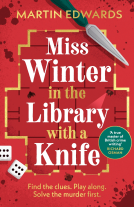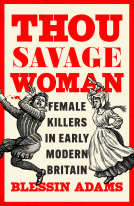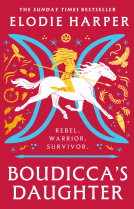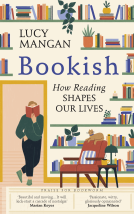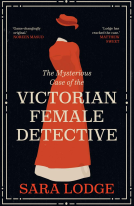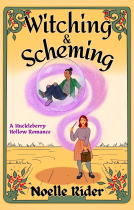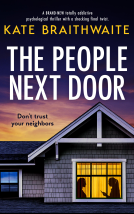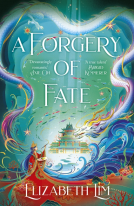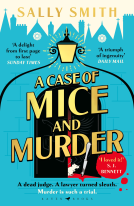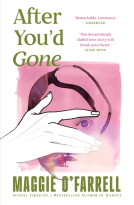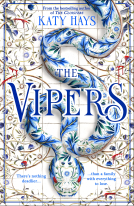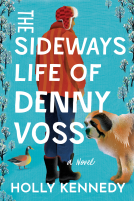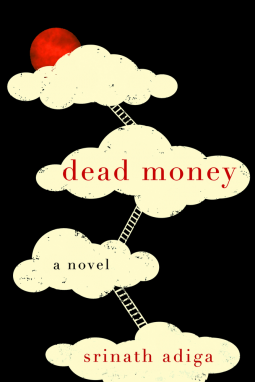
Dead Money
by Srinath Adiga
This title was previously available on NetGalley and is now archived.
Send NetGalley books directly to your Kindle or Kindle app
1
To read on a Kindle or Kindle app, please add kindle@netgalley.com as an approved email address to receive files in your Amazon account. Click here for step-by-step instructions.
2
Also find your Kindle email address within your Amazon account, and enter it here.
Pub Date 26 Jan 2021 | Archive Date 31 Mar 2021
Talking about this book? Use #DeadMoney #NetGalley. More hashtag tips!
Description
A stock market trader in Hong Kong desperate to pay off a fifty-three-million-dollar gangster debt. A mysterious suicide bomber in Mumbai under the spell of a dangerous myth. A banker in Amsterdam waging a lone battle to avert a global catastrophe.
Three men whose disparate journeys are connected by a dizzying chain of causes and effects from Afterlife Dollars. A product based on Chinese mythology that promises happiness in the next world, yet has a devastating effect on this one. As the characters grapple with their individual moral dilemmas, their choices will affect the rest of humanity.
Profound, intense and cleverly plotted with unexpected twists and turns, Dead Money is a multi-faceted satire about capitalism, religion and how the very things that make us human can ultimately lead to our demise.
A Note From the Publisher
Advance Praise
"A memorable premise lifts Adiga’s impressive debut. Adiga makes the central conceit work as he effectively sends up the tendency of people to believe anything." —Publishers Weekly
"Exhilarating pace, intriguing proposition, and plenty of dark laughs." —Kate Veitch, Author of Without a Backward Glance and Trust
"A unique and highly original story, tightly written and fast-paced." —Sion Scott-Wilson, Author of The Sleepwalker’s Introduction to Flight
"Quality prose, sharp dialogue, and a devilishly clever plot." —Nick Bleszysinki, Author of Shoot Straight, You Bastards!
Marketing Plan
Compare it to: Brave New World, 1984, Down and Out in the Magic Kingdom; Fall: or Dodge in Hell
• Visit: dead-money.net.
Compare it to: Brave New World, 1984, Down and Out in the Magic Kingdom; Fall: or Dodge in Hell
• Visit: dead-money.net.
Available Editions
| EDITION | Other Format |
| ISBN | 9781771682169 |
| PRICE | US$16.99 (USD) |
| PAGES | 416 |
Featured Reviews
The story is engaging and relevant for this year read. It’s nicely divided in three parts about what someone can do for money and how it affects on other people. A sharp, intelligent read!
Wow. What can I say. A real page turner and a thoroughly good read. At first it seems like an amazing story. How a plan to get out of a disastrous situation leads to an idea that preys on people’s fears and creates unprecedented wealth. How different situations lead a person down a path that ordinarily cruet would not go.
However as you get further into the book the fiction starts to seem more real, especially in these unprecedented times. How blame can quickly turn into ugliness and danger that can threaten life as we know it. But as an individual can you make change or do you just in your own small way try and and get on with life and hope that what we do teaches those that are most vulnerable.
Enjoy the ride in this thought provoking book!!
This is honestly one of the scariest book I've ever read. Its horror lies not in the supernatural, or any gruesome murder or crime plot, but in the startlingly reality it presents. The major economic crash in this book that leads to unprecedented poverty and homelessness, as well as the increase of extreme political and social movements, is caused by the idea of Afterlife Dollars, with increasing numbers of people investing in their afterlives at the expense of the current economy. The resulting fallout feels all too real in today's climate, and this book shows how a seemingly crazy concept - that of needing to save money for when we are dead - is actually something that can warp the minds of millions of people and cause the end of the modern world.
The book follows three people who are affected in differing ways by Afterlife Dollars, and the final section, following Theo, is where we see a culmination of the years of increasing value being placed on this Bank of Eternity. The chaos that ensues, and the fact that so many people in the book find ways for this chaos to inspire hate, especially towards other races and countries, feels scarily possible right now. I appreciate the fact that Theo is only able to find solace in meditation and inner peace. Where the Afterlife Dollars point to a crude and mercenary understanding of spirituality, the book ends with this more serene idea of a loving spirituality, one that we have to hold onto when everything around us is going wrong.
 Anne C, Reviewer
Anne C, Reviewer
I enjoyed this story about the invention of afterlife banking using capitalist and religious ideas, and it's ripple effects on the world.
I suppose this would fit in the dystopian fiction category although a lot of it felt very close to reality right now.
There are 3 different stories in different parts of the world. I usually prefer a single narrative, and did warm to Raymond in Hong Kong more than the others, but in this case the format works to show the global effects and links.
A very different and original novel.
Thank you to Netgalley, the author and publisher for a free copy in exchange for an honest review.
This is the book of the year for me. It is engaging, relevant, gripping and sometimes emotional for the reader. I can see this book being liked by all readers of all ages and social backgrounds.
English/Spanish
Thanks to Netgally for giving me an advance copy in exchange for an honest review.
This book was without doubt one of the best that I have read, personally it is very difficult for me to give 5 stars to a book, for me it has to have certain aspects such as the narrator, complex us of times, proposal in the topic and the language, among other technical characteristics in order for me to consider a 5 stars book. But Death money blows my mind in all aspects.
Talking about this story is kind of complicated, but here I go.
Raymond Li is an accountant who works for the chinese mafia, because of some reasons Raymond owns the mafia a lot of money and in the middle of his desperations he runs away and ends up close to an old man who is lighting up some fake money, as part of a chinese tradition, in order for the death person to receive the “money” in the next life. Thanks to this event Raymond comes with the idea of the AfterLife dollars. With some coworkers Raymond creates the bank of the afterlife, a place where you can deposit your money (being alive) so when you are dead you are able to receive those savings and enjoy them in death and you can have a peaceful rest full of commodities and luxuries.
This is how Death Money begins, something you have to have in mind if you are going to read this books is that it isn’t about Raymond and his life, no, but the idea of the afterlife and what is waiting for us when we die, ¿is it possible to save your money to spend it in a kind of heaven? That's the main topic, Raymond is just one of the three main characters.
The story takes place first in China, then we move to Mumbai to finish in Amsterdam.
I must say this book is not for everyone, it has a complex structure that connects itself based on the main idea and not the characters; the narrator is curious in the way that in some cases it talks directly to the reader; the book is full of critic and it has to be read carefully if you want to understand deeply what’s happening.
Death money is a story that asks a lot of your attention and in return it gives you a great proposal and a strong reflection at the end. 5/5 stars
----------
Gracias a Netgally por brindarme una copia avanzada de este libro a cambio de una opinión honesta.
Este sin duda ha sido uno de los mejores libros que he leído, personalmente es muy dificil para mi darle 5 estrellas a un libro, para mi tiene que tener ciertos aspectos complejos como el narrador, uso de tiempos, propuesta de tema y propuesta de lenguaje para que lo pueda considerar como uno de 5 estrellas. Y Death money sin duda me voló la cabeza en todos los aspectos.
Hablar de que trata es un poco complicado, pero aquí voy.
Nos presentan a Raymond Li, un hombre que trabaja como contador de la mafia china a la cual por diversas circunstancias le debe muchísimo dinero, en medio de su desesperación Raymond huye y termina encontrándose con un anciano que quema billetes falsos con la esperanza de que el “dinero” le llegue a su pariente muerto en el más allá, como parte de la tradición china. Gracias a este evento a Raymond se le ocurre la idea de los dólares del Afterlife. Desesperado por conseguir el dinero para pagarle a la Mafia, Raymond plantea junto a un grupo de personas la idea de un banco en el más allá. Un lugar conde en vida podrás depositar tu dinero con la esperanza de que lo recibas después de la muerte y puedas disfrutar un eterno descanso lleno de paz.
Así es como inicia Death money, tengan en cuenta que no todo el libro se trata de Raymond, sino de la idea del más allá, que es lo que hay, ¿es posible gastar tu dinero en la muerte? ese es el principal tema, Raymond es solo uno de los tres personajes principales.
Aquí la historia inicia en China, se extiende hasta Mumbai y termina en Amsterdam.
Tengo que decir que este libro no es para todos, tiene una estructura compleja que se conecta a base de la idea principal y no de los personajes, el narrador resulta curioso pero muy acertado y sin duda es bastante lento, está lleno de crítica y tiene que leerse con cuidado.
Es un libro que te exige demasiada atención y por lo tanto tú como lector exiges de vuelta a la historia. Sin duda la propuesta es llamativa y la reflexión final es bastante fuerte. 5/5 estrellas.
 Reviewer 725042
Reviewer 725042
I couldn't get enough of this book! The pacing was excellent, the characters were compelling, and it felt so singular in the space. I love that authors like Srinath are getting the support of major publishers.
Dead Money
Mysterious Book Report No. 436
by John Dwaine McKenna
What would you do, what could you possibly do . . . if you’d just lost 51 million dollars of someone else’s money by making bad investment decisions in the stock market? And if that cash belonged to a Hong Kong Triad kingpin with a history of killing debt welshers with a meat cleaver . . .
That’s the first half of the concept author Srinath Adiga opens with in his debut novel entitled: Dead Money, (Central Avenue, PB, $16.99, 416 pages, ISBN 978-1-77168-216-9). It’s the second part of the plot however, that’s utter genius, attention-grabbing and irresistible. That’s because Raymond Li—the high-rolling con artist and protagonist at the heart of this satirical masterpiece of crime fiction—comes up with an ingenious plan to keep himself from being chopped into fish chum. After a chance meeting with a man burning fake money on behalf of his ancestors, and a subsequent library visit, where he researches Chinese mythology and superstitious beliefs, Raymond Li comes up with the idea of “Afterlife Dollars” . . . fictional currency that’s purchased for real money in the here and now . . . to ensure a prosperous and comfortable existence in the afterlife. He starts small, in a Hong Kong strip mall, where he gets a charter and calls it the Bank of Eternity. Then, by using an aggressive marketing and advertising campaign with the slogan “Life Insurance is NO Good to You When You’re Dead,” and guarantees that deposits are backed by the “Afterlife Central Bank” which is run by “entities in the afterlife.” And Raymond Li knows this, he says, because he had a near-death experience and met them. And, damned if he doesn’t get the idea to take off! Because people will believe anything.
It’s an out and out con job . . . but the Bank of Eternity works because humans everywhere are trained to believe in the afterlife. In fact, the idea works so well, that within a few years the Bank of Eternity is world-wide . . . and that’s where the law of unintended consequences rears up and changes everything . . . when the focus shifts to Mumbai, India and then Amsterdam, Holland in this thought-provoking and highly entertaining novel. It’s got an edginess on every page that you’ll remember long after you’ve finished reading the last word!
Like the review? Let your friends know, You saw it in the Mysterious Book Report, because the greatest compliment you can give is to share our work with others.
And Hey! Check out our combined website that’s simple to use and easy as pie to leave your comments! We’re looking forward to hearing from all of you.
Johndwainemckenna.com
or
Mysteriousbookreport.com
I thought I left my job reading books about economics… and yet here I find myself. I wouldn’t have thought I could enjoy a book that talked about money this much, and yet… this is a great story. I didn’t buy in (pun intended) at first, but as time progressed narratively - and pages progressed in the text - it just comes together.
The story unfolds through the lives of three men, each interacting with Afterlife Dollars (think: a retirement fund for your 6-ft-under retirement eternity) in very different situations. Raymond is a desperate man with an idea who owes money to the mob. Sanjit is a man suffering an unfair fate and a desperate hope. Theo is desperately trying to make things right.
There are some obvious heroes and villains amongst the pages, but there is so much more nuance here than that. The book examines what hate and fear and consumerism and capitalism lead us to - personally and societally. Despite the seeming insanity of buying into (sorry, just abusing the pun now, but it works!) the whole Afterlife dollars thing, it also rings truer than I would have liked. What is any currency or economy but a choice to adhere to exchange and valuation? What even is the stock market but people tossing money into the void and hoping it fells some extra?
I’m grateful the book ended with Theo, as he wasn’t exactly a lot of hope, but he was some and I needed it. This novel is philosophically dense while still being impressively page-turning in terms of pacing. I’m impressed, but I think I’d rather read Grapes of Wrath or Don Quixote again before again facing Dead Money… which sounds like a criticism, but I don’t mean it as such, it is just a serious book about the best and worst of humanity and the world we live in and that doesn’t make it easy to read in the midst of a pandemic and capital infiltrations and you know, life as we know it these days.
My thanks to the author, publisher, and NetGalley for an advanced reader copy in exchange for an honest review.
 Robert S, Reviewer
Robert S, Reviewer
I suppose the basic plot arc is the interconnectedness and fragility of world economic systems, and how unintended consequences can turn a small ripple into a worldwide catastrophe. It's also a reminder that financial markets are driven by the interplay of fear and greed. But that sells it short: hung on that arc are issues of religion, politics, and human nature, along with a well-rounded cast and an engrossing story.
It's also very funny, although most of the humor is dark and even brutal, and some of the laughter is a little nervous when the satire gets close to current events.
The characters are very well-rendered, especially considering this a debut novel; none of the characters are wholly good or wholly evil (except for a few caricatures on the margins of the story), and their actions seem believably grounded in their circumstances. The story-line is exaggerated (I hope) - this is a satire - but not so far from possible as to be unthinkable.
 Louise W, Reviewer
Louise W, Reviewer
Hong Kong 2002: A stock market trader desperateto/pay off a gangster debt invents a scam: Afterlife Dollors. A product inspired by an ancient Chinese custom that allows people to buy their way into heaven. It's the beginning of a dizzying chain reaction that ripples in Mumbai, where one man does the unthinkable to secure his afterlife - while thousands of miles away in Amsterdam, another man races against time to stop an apocalypse.
This story is divided into three books. Each book has a different setting and characters. We get a good look into the beliefsin the spiritual world, religions and myths. It's a cleverly written, disturbing and funny debut novel. The three protagonists were believable. The story also gives us compassion and hope. I loved this book.
I would like to thank #NetGalley, # CentralAvenuePublishing and the author #SrinathAdiga for my ARC in exchange for an honest review.
 Cathy E, Educator
Cathy E, Educator
Thanks to net galley for a copy in return for a review. I'm a little unsure about my rating for this book to be honest, and it's the ending which has made it a 3.5 for me.
This isn't what I expected, this is essentially 3 different stories but they are all linked by this idea of afterlife dollars. Now first off I want to say that the idea itself is really clever and if it hadn't have been in a story, quite plausible, though I suppose they based scientology on a sci fi series so anything can happen! But really the idea is a good idea and it is for me a unique idea. The first story was a bit slow at first but once the idea was established things came together. I had already predicted the irony of the end of that novella, but it was nice none the less. Novella 2 was my favourite of the three stories and I think this was a story which could have been developed. This story had a little more pace and again it had a uniqueness to it. It was also an interesting concept and raised some deeper issues. The final story started off strong, but I have to admit the end was not for me. For the other two stories there was a build up and then a somewhat flat but ironic and fitting end. With the third it was like it built up and then worked back down again; it wasn't in keeping with the other two.
As for the characters, they were good. I felt their stories seemed mostly believable and their emotional responses were believable even when they weren't so much. Yes they were characters with an agenda, that was obvious, but I wasn't too bothered by the authors presenting their message through the character. The settings were good. I liked how we glimpsed different cities and the worlds of these people although again, the last story didn't do this so well. The writing style was comfortable and mostly easy to read, where the pace dropped it felt a little bit if a slog.
Overall an interesting read. This book raises several important issues and challenges the reader. It was let down by the third story and at times the pace was too slow; too much focus on the people and their conversation than the action and moving the story forward. 3.5 stars for me.
This seemed to be starting off so good! Dead Money was really a collection of three tales that all trace back to that opening. Basically, Raymond makes really bad decisions. At first they only hurt him. In desperation, to not be killed by a dangerous crime boss, he comes up with a ridiculous scheme to sell money for the afterlife. Yes, you give him money and he transfers it to the Afterlife Bank and you can pick it up there when you die. OK. And people buy it. This ridiculous scheme actually works way better than he would have thought it would. This causes a series of other issues for other characters and Raymond is responsible, really, for a global financial crisis.
I am conflicted about this book. In some ways the premise is brilliant. It really has the makings of a brilliant satire on our entire global financial system and what it is really based upon. A lot of people have made a lot of money selling things that were absolutely worthless or nonexistent and eventually that bubble has caused financial chaos. I get it. I found the characters and dialogue awkward and unbelievable at times. For me it didn't flow as well as I would like it. But, this is a ridiculous situation with ridiculous people, so maybe this is part of it. All in all, a good analogy of the folly that people will do for money.
 kATHLEEN G, Reviewer
kATHLEEN G, Reviewer
It's hard to know what to make of this satire on money and gullibility. Raymond creates Afterlife dollars in 2002 after he loses a lot (a lot) of a Hong Kong gangster's money. It's a smart scam which plays on those who believe in, well, an afterlife, He's not a sympathetic character, Flash forward to 2011 and Mumbai, where Sanjit, who is thirty, is facing an ALS diagnosis and a desire to provide for his family. Then there's Theo, in Amsterdam, where things get really out of hand. There are multiple themes here, some of which resonate more than others. I found it a little distracting that Adiga chose to write this as something which has happened- not in future mode. The storytelling is good- it's an innovative plot. Thanks to Netgalley for the ARC. For fans of literary fiction.
 Jamie G, Reviewer
Jamie G, Reviewer
A very philosophical tale, based around the monetisation of the afterlife with the creation of Afterlife Dollars - a means of assuring your safe passage into the afterlife, therefore putting a price on your life and what value you place upon yourself.
Starting in Hong Kong, and created as a means to avoid getting whacked by a mobster it takes on a life on its own and becomes a commodity that branches out around the world - taking on a mythical stance based upon each cultures own view on death and the hereafter.
The middle portion in India takes a dark turn with threats of terrorism and asks the question there about meeting your virgins in the afterlife in that instance.
Yet the final act in Amsterdam, helps kick the narrative up a notch with fine patter of dialogue handled well asking these open ended questions leaving the decision down to the challenged reader.
 Reviewer 678233
Reviewer 678233
This book is comprised of three smaller, intertwined “books” that each tell the story of a different character. These stories will make you question everything you thought you knew... about politics, about morality, about humanity itself.
There is so much literary goodness to unpack in this phenomenal book, I don’t even know where to begin. Adiga crafts a story that blurs the line between good and evil with morally ambiguous characters. He highlights the idea that people believe what they want to believe and see what they want to see. It happened with global warming and it is happening with the
pandemic. Moreover, Adiga focuses a lot on the dangers of unfettered capitalism, “a system that’s neither just nor fair but promotes greed, exploitation, and mindless consumption”, and how it could ultimately destroy itself.
This story reminded me why I love reading. It reveals so much about human nature while also offering compassion and hope. It is dark. It is uncomfortable. It is one that I will think about for the rest of my life. This book is destined to be a classic.
Thank you to NetGalley for the opportunity to read this book which will be published on 1/26.
 Reviewer 709877
Reviewer 709877
Disclaimer: I received an e-proof of this book in exchange for an honest review.
I greatly enjoyed the originality of Dead Money, particularly because of how timely it feels with the COVID-19 pandemic and the effects of consumerism. The book is made up of three stories. Book 1 focuses on Raymond, a stockbroker in Hong Kong trying to pay off his debt to a gang by selling afterlife money. Years later, Book 2 follows Sanjit, a man in Mumbai who’s just received a terminal diagnosis and is desperate to buy afterlife money. And Book 3 covers Theo, a man in Amsterdam who’s affected by Sanjit’s choices and is having an ethical dilemma about his company trading afterlife money, and follows the political and economic fallout of the world’s obsession with afterlife money.
This book made me laugh and feel uncomfortable with how close to home it felt to current events. I really enjoyed this quote: “Just like suicide bombers, consumers are being conditioned to believe that what really matters is the next life.”
 Reviewer 757056
Reviewer 757056
so mans really caused a global economic catastrophe all because his impulsive ass needed to pay off debts. is this satire? or is this just real life? you know, if this book was published some time ago, maybe 10 or 20 years ago, it would be labeled as dystopian no question. the end of the capitalist world caused by the driving force of capitalism itself: money. reading this now, Christmas eve of 2020, it's just a story of our reality. it's hardly even satire anymore because it's just reality. the last page of this book? yeah that's just present day. the fact that it ends there is eerily terrifying and yet not surprising at all.
coming into this book, i thought that the three stories were actually separate stories, all a different satirical approach to exposing the invisible chains that hold us to the man-made concepts of capitalism and religion. but upon finding out that they were all connected stories about three different men in different stages of the downfall of the economy, i realized i was in for a treat because this is the perfect way to illustrate how capitalism as an economic system is doomed for failure in its nature, that its very structuring is what will topple itself over. economic crises don't just happen because one person made a mistake or even a group of people or a company. it's the gradual conditioning of the entire global population to value money over everything. it's governmental complicity in averting crises in order to keep their elected seats and not anger their under-the-table business partners. it's racist groups who sow hate to pass the blame of poor living conditions caused by capitalism to other people who can easily be labeled as 'different' and therefore 'dangerous', instead of accusing those who are perpetuating the system. adiga did a magnificent job exemplifying these concepts in the gradual way the crash came to be, all the little things that added and added to the inevitable outcome. the characters he created were also wonderfully written, giving each protagonist a well-developed backstory that humanized them even in their worst moments. we even feel sympathy for raymond, even as we gradually realize the absolute monster he had created. did he create the downfall? or did he simply speed it up? is he to blame for taking advantage of consumer vulnerabilities? or is the system that allowed him to do so to blame?
i found mara's character to be the most intriguing of them all. she starts as an impassioned activist for really whatever cause she can find, an exaggerated display of a, and i apologize for using this term, 'social justice warrior'. but as the weight and insurmountability of the crises take hold of the characters, she takes on a state of subdual, a passive indifference to a world that seems to take its course no matter what anyone can do. her change is an accurate and well-written portrayal of the average modern-day person, burdened by the influx of social media and the news and the impossibility to escape a feeling of responsibility for crises that are out of our control. how can we not be cynics when the last positive news was a war averted?
anyway, enough of my anti-capitalist rant. dead money is very well-written and does a superb job at depicting all the nuances in capitalist vs. anti-capitalist, religious vs. non-religious arguments because there are a lot of nuances. however, i found the ending a bit strange, cheesy but also didn't make sense? like what was the point he was trying to make? it seemed he posed a question but didn't provide an answer? or he did provide an answer but didn't develop it? the ending was a bit abrupt and frankly didn't fit with the rest of the novel, and is the only reason i am not giving this 5 stars.
Afterlife Dollars are the modern day equivalent of the philosophical argument of Pascal's Wager, except rather than gambling on whether god exists or not, it's betting on whether a capitalist afterlife exists or not. The way that herd mentality operates to convince people to make an investment in the dubious scheme because everyone else did was so realistic it was scary!
I was stunned to discover that this intricately-plotted, intense and thoroughly plausible book is the author's first published work. It was excellently written, with each of the three parts being set variously in Hong Kong, Mumbai and Amsterdam, all of which were evocatively realised. The three protagonists were flawed but believable.
Recommended for those who enjoy a thrilling read, set in a not-very-alternate universe.
Thanks to the author, publisher and NetGalley for providing a review copy in exchange for honest feedback.
One of the most prominent thoughts in Dead Money is that everything is just an illusion spun up by people so they don’t have to think about the depressing fact that nothing matters, death will follow anyhow.
Dead Money builds on the Chinese beliefs about the afterlife. The main character, Raymond, takes the concept of Hell Money and turns it into the thriving economic asset Afterlife Dollars. Everything is make-believe, or is it? Good branding can convince you something is cool, but what makes one thing (for example a t-shirt) better than another? What makes Afterlife Dollars different from other new currencies like Bitcoin?
The three stories in Dead Money are very realistic and well-written accounts of how three people with different backgrounds deal with their struggles in life. Be it financial, healthwise, or purposewise. They’re stories of transformation. The content is interesting and the writing skills of Srinath Adiga are good. Despite all that, it took me a long time to finish the book.
This is partly because there was no surprising turn of events (to me). Dead Money reads like a case study. So while I greatly appreciate the character building, the setting, and the Afterlife Dollars concept with all of its consequences, I didn’t enjoy the book as much as I expected. I’d almost say it reads like a non-fiction book illustrating the rise and downfall of an economic asset and the industry surrounding it. The consequences of the Afterlife Dollars economy as a whole are more interesting than the stories of the narrators. So yes, it is a truly interesting book to read, but not the most exciting.
The main reason for my lesser reading experience is that the middle part is less interesting and hardly moves the plot forward. On the other hand, the first part reads like a thriller and I was curious where the third part would take me (a somewhat hasty dystopian ending apparently).
Regardless of the above: Dead Money leaves me intrigued and makes me think about my choices in life and how my choices influence the world. While I would never want to do something like Raymond, I do feel inspired to identify emerging industries and take part in their growth.
What also stayed with me is the question of whether I would realize it when I am being fooled? As for you, do you know what’s fooling you? What did you buy into recently? Do you believe what you see on the news or what you read in books?
I want to end my review with the following topic for discussion: Are Afterlife Dollars per definition bad if they contribute to the spiritual and mental wellbeing of people?
 Shroo R, Reviewer
Shroo R, Reviewer
The book is very mature and differently set on leagues of 1984 by George Orwell. A masterpiece indeed that I devoured few pages at a time. The authors writing is flawless and connecting, loved every page of it,
 Donna S, Reviewer
Donna S, Reviewer
Life is short. But afterlife isn’t. This is the ad campaign for a one of a kind con that our main character cooks up in order to try and repay fifty plus million dollars he lost as a spectacularly bad investor. He is selling afterlife dollars to ensure that you can live out your death in style, safety and comfort. Apparently, you can take it with you.
While you might think people are far too savvy to fall for this scam, many cultures subscribe to deeply imbedded beliefs about life after death that may make them more susceptible to manipulation.
I didn’t realize until the shift into the second part that this was a novel comprised of the interconnected stories of three men caught up in this scheme in different ways. Early on in this book I thought I was reading a satirized skewering of consumerism and maybe religion but as we shifted into the second part, the threat of the consequences the hustle was revealed in a way I wasn’t prepared for. And frankly, the swerve somewhat lessened my enjoyment of the read.
Without question this is a unique book, kudos to those that ensure novels that don’t fit the formula make their way to readers!
 Anna S, Reviewer
Anna S, Reviewer
Dead Money by Srinath Adiga is so out of my usual reading choices that I wasn’t 100% sure it was a good idea to request this book but the description caught my attention so I did. And it was a really good idea, I’m glad I requested it.
I can’t describe the book in one word or put it in just one genre. The book is about something that every one of us has thought about before: afterlife. What happens after we die? Do we go to Heaven? Or Hell? Does what we do in this life matter? It should, shouldn’t it?
According to Raymond Li - main character number 1 - if you have the money you get to have everything in the afterlife. Raymond comes up with the ide of Afterlife Dollars. The ide is based on Chinese mythology. He invents a whole background to Afterlife Dollars and sells it to the world.
Raymond is a very smart man, a genius really but behind his smart idea there is cowardice and greed. He starts out as a decent guy I guess but things spiral out of control for him and after he comes up with Afterlife Dollars there is no going back.
Sanjit lives in India, in Mumbai. He is a desperate man, he has nothing to live for since he found out about his sickness. But when he hears about Afterlife Dollars all he can think about is his Afterlife and to get the money to have it. He used to have a normal life, a working relationship but his sickness and then his obsession with Afterlife Dollars changes everything.
Theo is a banker, living in Amsterdam. He is rich, he is successful. Basically, he has everything he ever needed. Until Afterlife Dollars reach Europe too. He knows something is wrong from the start, he knows this is too good to be true. And he will do everything he can to stop Afterlife Dollars from taking over the world. Because even people who didn’t used to believe in the afterlife start making choices that influence this life so they can have a cushy afterlife.
Dead Money is not easy read. In its center is something that is very controversial and could be or maybe should be unbelievable but Srinath Adiga sells it to us. When I started reading I thought this was a joke but as the story unfolded I lost my humor and stopped laughing and started thinking and I couldn’t stop reading. I highly recommend this book.
Thank you to NetGalley and Central Avenue Publishing for my copy.
 Jason H, Reviewer
Jason H, Reviewer
The most powerful element of Srinath Adiga's debut novel Dead Money isn't merely its ripped-from-the-headlines global timeliness, but that it serves as a parable and cautionary tale for a world that is quite likely past the point to reverse course and avoid destruction. So while the book, which presents three interconnected stories of young men caught up in a global marketing gimmick that creates religious and political shock waves for individuals and nations, is not light-hearted or especially pleasant to experience, it is smartly written and has much to say about the dangers of 21st century capitalist and nationalist trends.
We start with Raymond Li, a power broker who has played fast and loose with a gangster's investments and now faces a loss of millions of his client's Hong Kong dollars. In desperation, Raymond tries a side hustle: for a small sum, a person can convert their worldly cash to AfterLife Dollars, suitable for spending once one has died and moved on. Pitching this mix of religious dogma and ultra-insurance proves to be a success, and Bank of Eternity branches sprout first in China and then take root in other countries, the sales portfolio adjusted to reflect the beliefs of the land. Dead Money's middle section follows Sanjit Sharma, whose diagnosis of a terminal illness leads to an obsession with next-world security and karmic justice. The book concludes with Theo Van Aartsen, an AfterLife Dollars day trader who tries to speak out against the product that, left unchecked, will cause economic and social devastation.
Author Srinath Adiga keeps his grim stories pushing relentlessly forward, and there is a fascination in the details and the larger ideas that makes the dystopic world of each main character truthful and engaging. Indeed, the story's narrative unfolds over the last 18 years, and it is not coincidental that tragic global events of those two decades act as touchstones: the World Trade Center attacks, the stock market collapse, growing civil unrest, and even the rise of Fascism. The author has much to say about these turbulent times and where we are going as humans, and he uses his central premise – those in power cynically taking advantage of those without, fomenting division and false hope along the way – to create a very believable chain of cause and effect.
I also appreciated reading a story whose central characters were genuinely cross-cultural (read: not American), with settings in Hong Kong, Mumbai, and Amsterdam. Here, too, Adiga crafts his specifics to make the neighborhoods and supporting players feel truthful. The challenge is that so many of the characters are not likeable by design, which makes for a sometimes alienating effect. But this is a necessity based on the cautionary parable being told; people are not trustworthy and systems (and sometimes, it seems, life itself) are built to penalize the innocent and enrich the guilty. The lesson may be unpalatable, but that doesn't make it less true or less important to face.
Note that there is a fine streak of dark humor running through Dead Money, and even better, the reader is shown pockets of humanity to contrast against the cynicism and avarice that fuels so many of the characters within these pages. It's enough to make us want to stand with Theo and reject the most damaging and corrupt ideologies by those in financial and political power. But, as Theo suspects, it seems that these systems are increasingly impossible to fight once they are established.
I received an advance copy of this book through NetGalley in exchange for an honest review. Dead Money, from Central Avenue Publishing, will be available in the United States in January 2021.
I received this Advance Review Copy by Netgalley and Central Avenue Publishing in exchange for an honest review.
Thank you Netgalley, Central Avenue Publishing for the opportunity!!
Review
Dead Money is the debut novel of the author Srinath Adiga. It is satire about religion, money, politics and spirituality. The idea of the book was so new and unbelievably different. The author had taken something very unbelievable and distinct as the core subject of his book and the most astonishing part is that he had written it pretty convincingly. I guess even the most rational and practical of personalities would forget the reality and simply delve into his story.
The book has been divided into three parts and each part is written from the perspective of three different individuals from different places like Hong Kong, Mumbai and Amsterdam respectively. The author had beautifully described all of these amazing places with his words. This book had so many different people from different societal backgrounds, religious backgrounds, languages, different ethnic groups and race. The way the author had brought all these set of people together to weave a plot was simply mind-blowing. But with the beginning of each part of the book it almost felt like reading a new story altogether and it took sometime to get used to the writing and narrative style of the author with each and every part of the book. The writing style could’ve been even more smooth and better. At certain point it felt tedious to read the book.
Though the beginning of each part was quite slow, the way the author had ended each of the part was simply amazing. The first two parts, that’s the story of a man from Hong Kong, Raymond Li and the story of a man from Mumbai, Sanjit was written down so very perfectly. With this book the author had come up with a novel concept called dead money, while Raymond Li’s character first came up with this idea of dead money, it almost felt like a joke initially but with each passing page the author had successfully rationalized the concept.
Among the three men, Theo, the guy from Amsterdam was the genuine personality and he is the guy I liked to read about in this book but somehow his side of the story wasn’t quite satisfying. The author could’ve worked more on Theo’s story to make it better and fulfilling. After reading the first two plots, Theo’s side of the story obviously felt quite disappointing and inefficient.
The author had talked about lot of issues in this book, the mad and blind beliefs of the people on myths, religions and spirituality. He had talked about the COVID Pandemic, economic recession, the fall of global economy, finance, racism, religious discrimination and many hard topics like that. Though it was all written very efficiently a couple of topics actually deviated the story from the main core. It was kind of forced and irrelevant.
The novel, anew idea of the book was outstanding. Despite having a slow start, the beginning and the middle of the book was amazing but somehow the end didn’t go so well. And that was highly disappointing.
My Views
The total idea of the book was so cool. I didn’t know how the author had come up with such a different and new story-line. It was completely a new experience to have read it. As I said earlier the end wasn’t satisfying, it felt inept. The ending of the book is as much important as the beginning of the book. Even if the book hadn’t been good from the beginning but if it had a good climax, the readers would almost forget the not so good beginning and will be wholly contented with the ending. So ending is very important, in that case, I would say the ending of this book actually damaged the good and amazing plot of the book. And the ending of the book was also written too very hastily.
There were stereotypical comments here and there in the book but I would like ignore it because of the novel idea and plot-line of the book. I really liked the way in which the author had satirically approached the issues spoken in the book. And also it made me think a lot. My favorite part of this book was, the way the first part of the book ended, that is the way Raymond Li’s side of the story ended. It was quite shocking and good.
My rating for this book would be 3 out 5 stars
I would recommend this book to people who love to read political, economical and religious satires. If you wanted to read something new and completely refreshing and satirical. You guys might enjoy this book to the core.
Do read this book and tell me how you feel about it on the comment session below!!
Happy Reading Folks!!
~ Meenu
